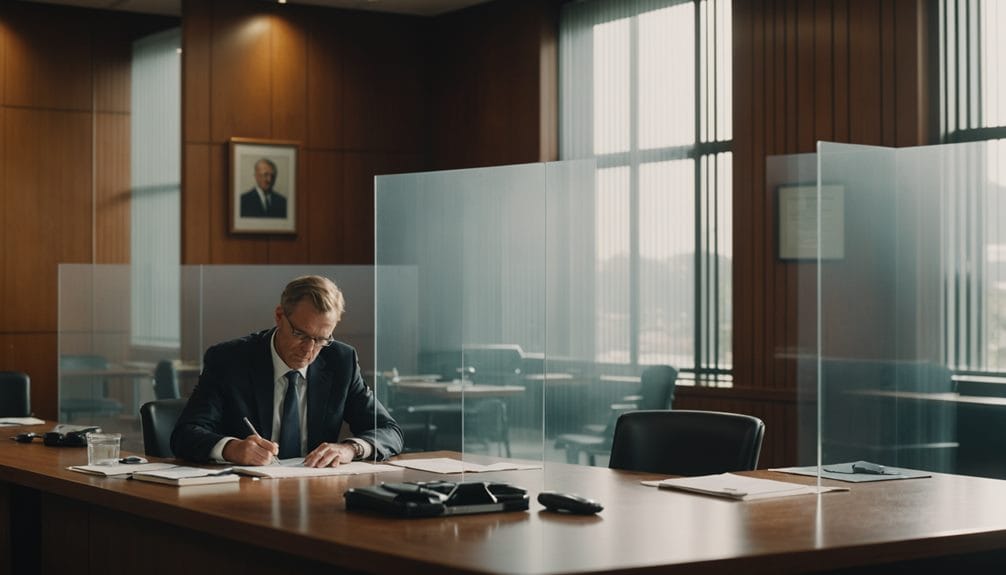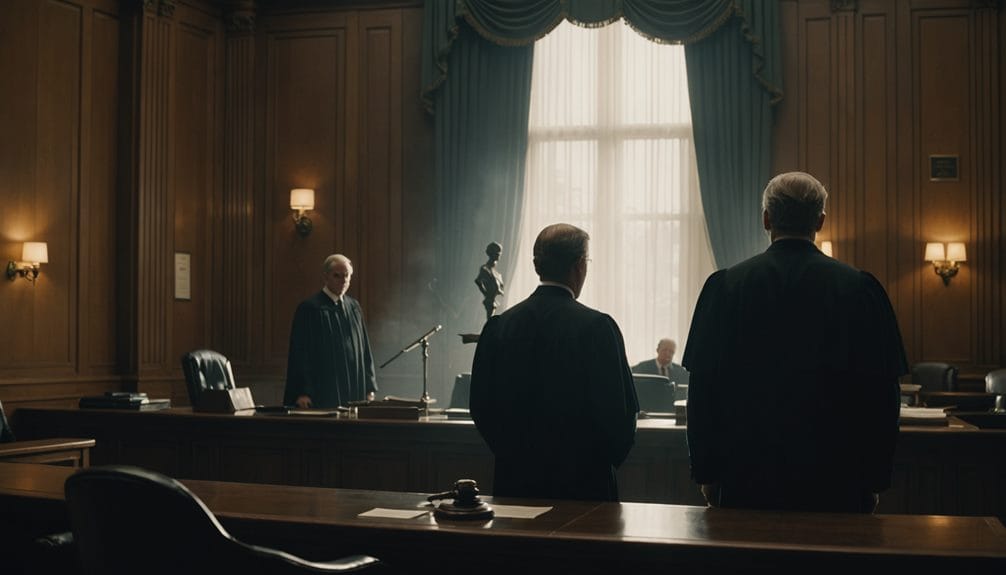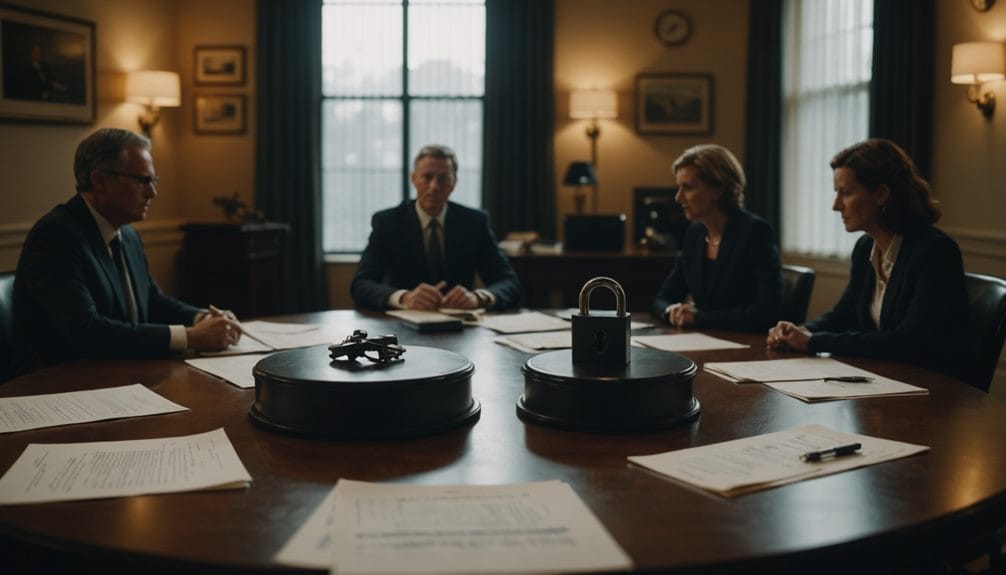Intro: Christmas is meant to be a time of joy, laughter, and family - but for separated parents, it [...]
Managing privacy in divorce proceedings is crucial in Australia. Consider mediation or collaborative divorce to keep your personal affairs private. Section 121 of the Family Law Act protects your details, and with the right legal guidance, you can secure your court records. Always be mindful of what you share to safeguard your privacy.
What Are the Legal Options to Keep My Divorce Private?
To maintain privacy in divorce proceedings, consider mediation or collaborative divorce, as both methods prioritize confidentiality and allow you to retain control over the process. These approaches avoid the public exposure associated with court litigation, providing a safer environment to resolve disputes. If privacy in divorce proceedings is crucial to you, litigation may not be ideal, as it can lead to public records and less control over sensitive information.
How Mediation and Collaborative Divorce Protect Privacy
Mediation and collaborative divorce are two of the best ways to ensure privacy in divorce proceedings. Both methods emphasize confidentiality, enabling you to negotiate settlements in private without the risk of public scrutiny. With legal professionals bound by ethical obligations, you can guarantee that discussions stay secure. The cooperative nature of these processes further enhances privacy, as sensitive information isn’t recorded or disclosed, unlike in traditional court proceedings.
Is Litigation the Right Path for Privacy?
Litigation in divorce proceedings can be challenging, especially when privacy is a top concern. Section 121 of the Family Law Act helps protect privacy in divorce proceedings by prohibiting the publication of identifying details. While litigation offers some confidentiality, mediation and other alternative dispute resolutions may provide a more private solution, allowing you to resolve matters without sacrificing privacy.


How Can I Ensure My Divorce Records Are Private?
To ensure privacy in divorce proceedings, start by understanding what information becomes public, such as court dates and filings, while personal details are protected under Section 121 of the Family Law Act. You can request the court to seal divorce records, preventing public access and safeguarding sensitive information. Additionally, regularly review your online privacy settings and share court documents only with authorized individuals to further protect your privacy in divorce proceedings.
What Information Becomes Public in a Divorce?
When navigating divorce proceedings in Australia, it’s important to understand which information becomes public. Under Section 121 of the Family Law Act, personal details such as names and addresses are kept confidential. Court documents are anonymized to protect privacy in divorce proceedings, underscoring the significance of confidentiality. Breaching these laws, such as sharing details publicly, can lead to severe penalties. Always consult legal professionals to ensure privacy in divorce proceedings is maintained.
How to Seal Divorce Records and Protect Privacy
Securing privacy in divorce proceedings starts with understanding the legal options to protect sensitive information. You can request the court to seal divorce records, ensuring compliance with privacy laws and confidentiality provisions within family law proceedings. Legal professionals can guide you through this process, safeguarding your personal information. Remember, breaching privacy in divorce proceedings can result in severe penalties, making it essential to maintain confidentiality throughout.
How Does Confidentiality Work in Divorce Mediation?
In divorce mediation, privacy in divorce proceedings is crucial for fostering open and honest communication. Laws ensure that anything discussed during mediation remains confidential, allowing both parties to address issues candidly without fear of courtroom repercussions. These privacy protections facilitate amicable resolutions and provide a secure space for sensitive topics, guaranteeing that mediators cannot disclose your discussions in future legal proceedings.
Confidentiality in Mediation: Benefits and Protections
Privacy in divorce proceedings plays an essential role in mediation, ensuring that all conversations remain confidential and encouraging open dialogue. The Family Law Act safeguards this confidentiality, preventing mediation discussions from being used in legal proceedings. Mediators adhere to strict ethical standards to protect your privacy in divorce proceedings, building trust and promoting secure communication. Breaching confidentiality can lead to serious consequences, emphasizing the importance of maintaining privacy throughout the divorce process.
How Can You Protect Your Privacy From Public Scrutiny During a Divorce?
To protect your privacy during a divorce, begin by securing sensitive and financial information through encrypted communications and secure document storage. Keep child custody details private by limiting discussions to trusted individuals and consulting your solicitor for guidance on confidentiality. Work closely with your divorce solicitor to ensure that all personal matters are safeguarded, and familiarise yourself with legal provisions like Section 121 of the Family Law Act to understand your rights and obligations.
Protecting Sensitive and Financial Information During Divorce
Navigating the privacy challenges during a divorce requires careful attention to protecting your sensitive and financial information. Engage a family lawyer to navigate the financial separation process and utilise Section 121 for confidentiality. Secure your online accounts by changing passwords and enabling two-factor authentication. Avoid sharing details on social media to maintain privacy, ensuring sensitive information isn’t exposed to unauthorised individuals or public scrutiny.
Strategies to Keep Child Custody Details Private
Maintaining the privacy of child custody details during a divorce is essential to prevent public scrutiny and secure your child’s well-being. Begin by refraining from sharing custody arrangements on social media, adhering strictly to privacy laws. Keep all documents confidential, sharing only with authorised individuals. Consult a family lawyer who can navigate family law intricacies and uphold confidentiality. Avoid discussing sensitive matters with friends or family.
Working with a Divorce Attorney to Safeguard Privacy
While maintaining the privacy of child custody details is crucial, engaging a divorce solicitor can further protect your personal matters from public scrutiny during a divorce. They will guide you through Section 121 of the Family Law Act, ensuring confidentiality by advising against sharing sensitive information. Your solicitor also assists in drafting confidentiality agreements and managing communication strategies, effectively safeguarding your privacy throughout the proceedings.
Final Thoughts
When navigating your divorce in Australia, it’s crucial to safeguard your privacy to protect yourself and the integrity of your case. Start by tightening your social media settings, changing passwords, and enabling two-factor authentication to secure your digital presence. Consider the Online Safety Act 2021 your ally in tackling online threats. Staying proactive and informed ensures your personal information remains confidential. This lets you focus on the vital parts of your divorce proceedings with peace of mind. Think of it like locking the doors of your home; it’s all about keeping what’s important safe and sound.


























